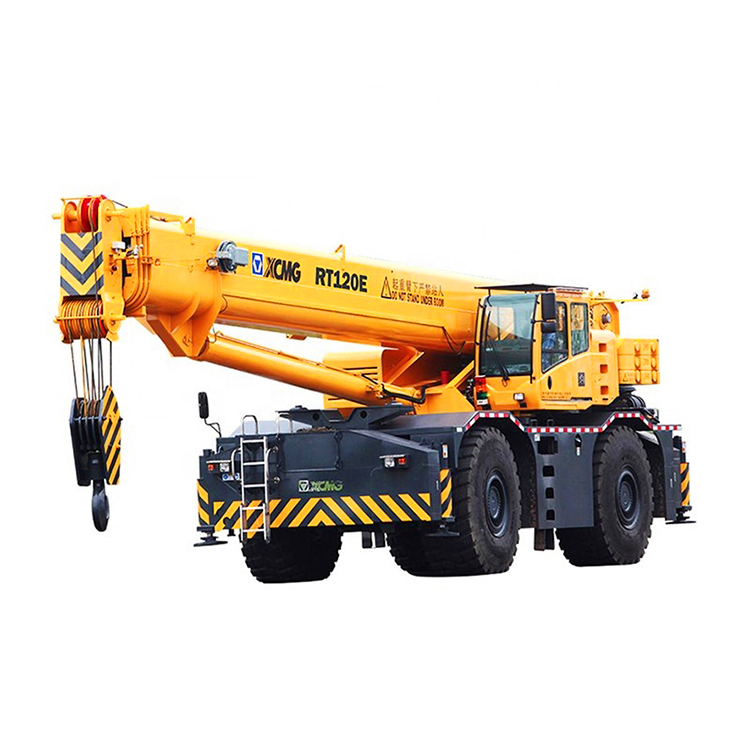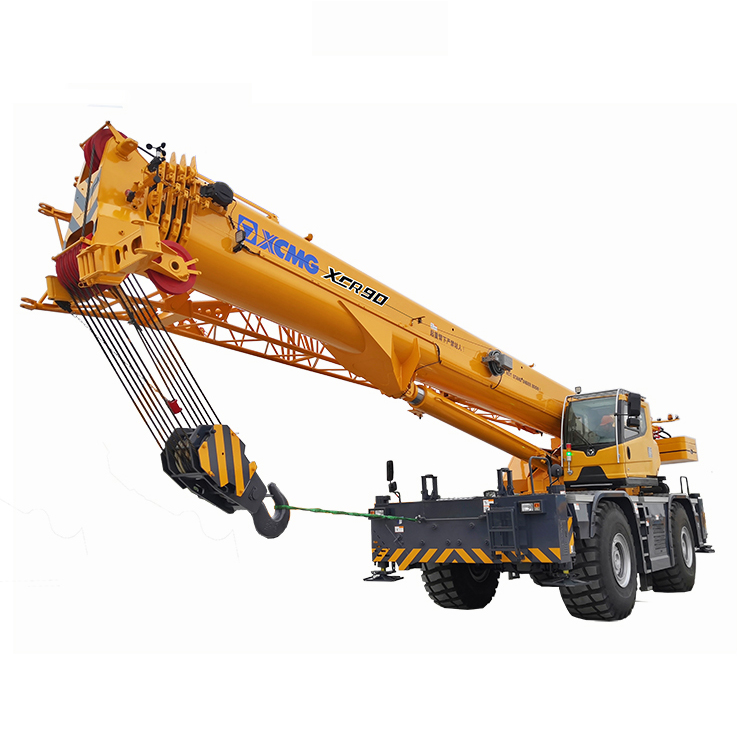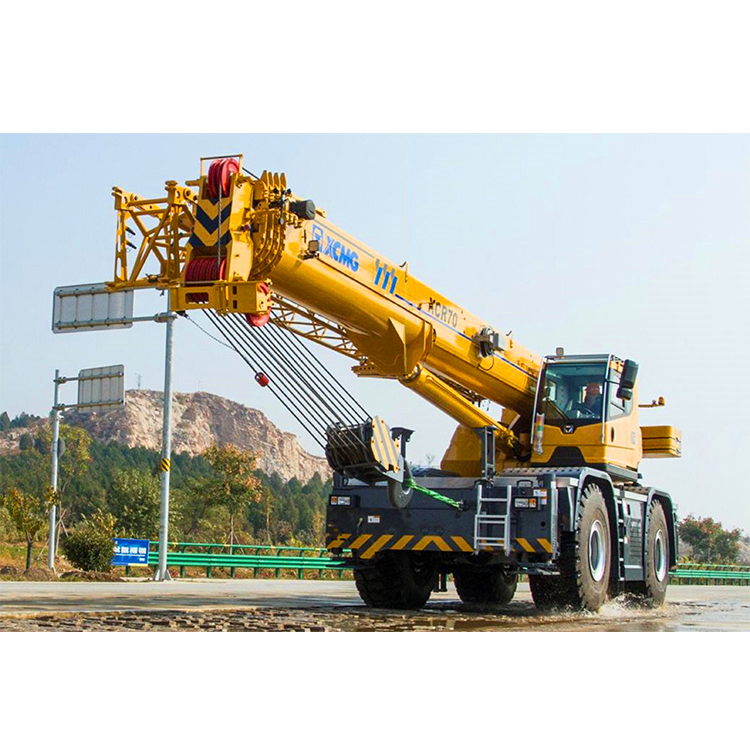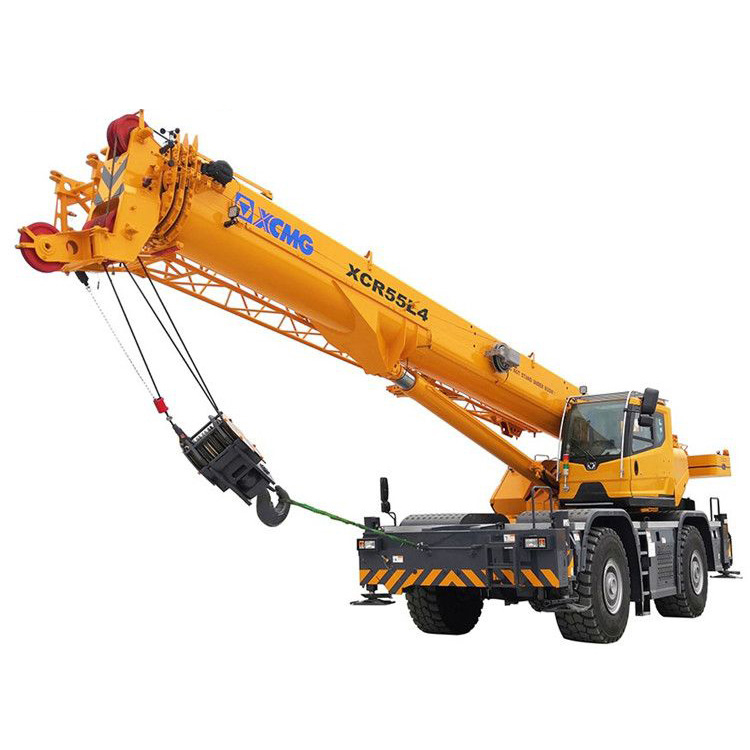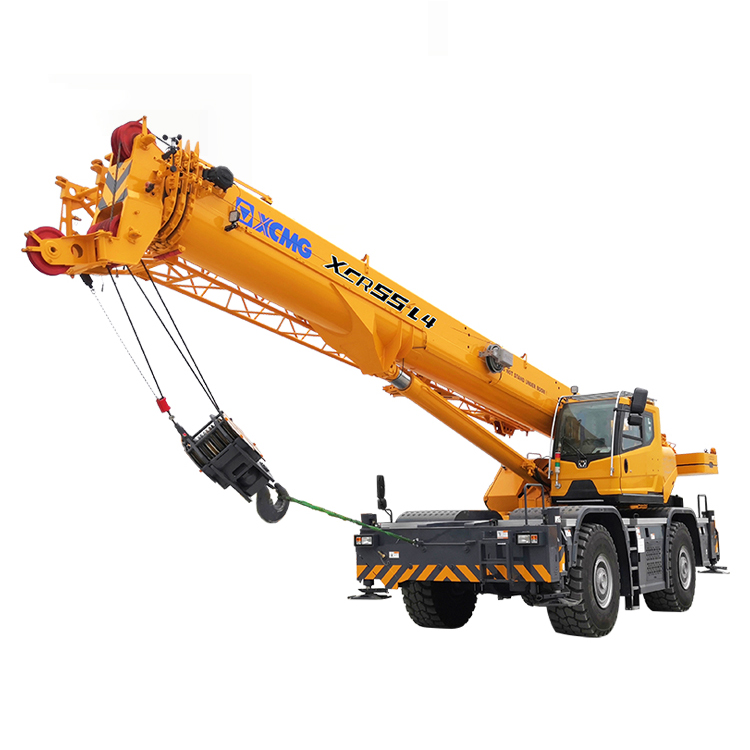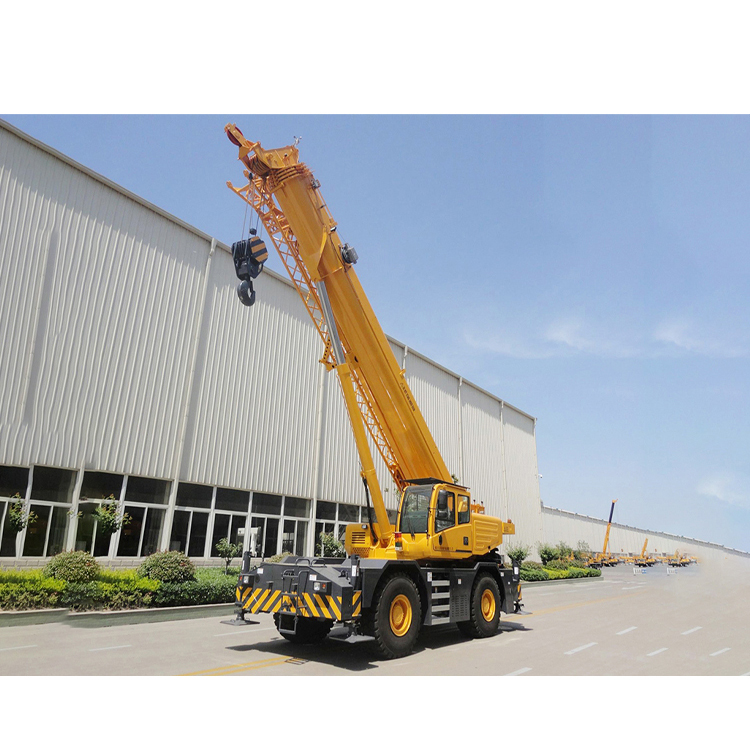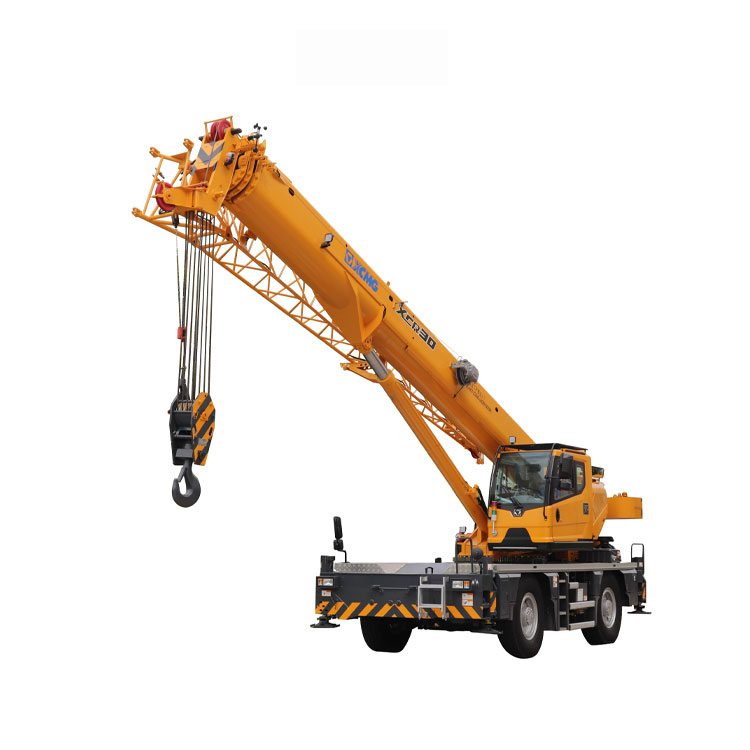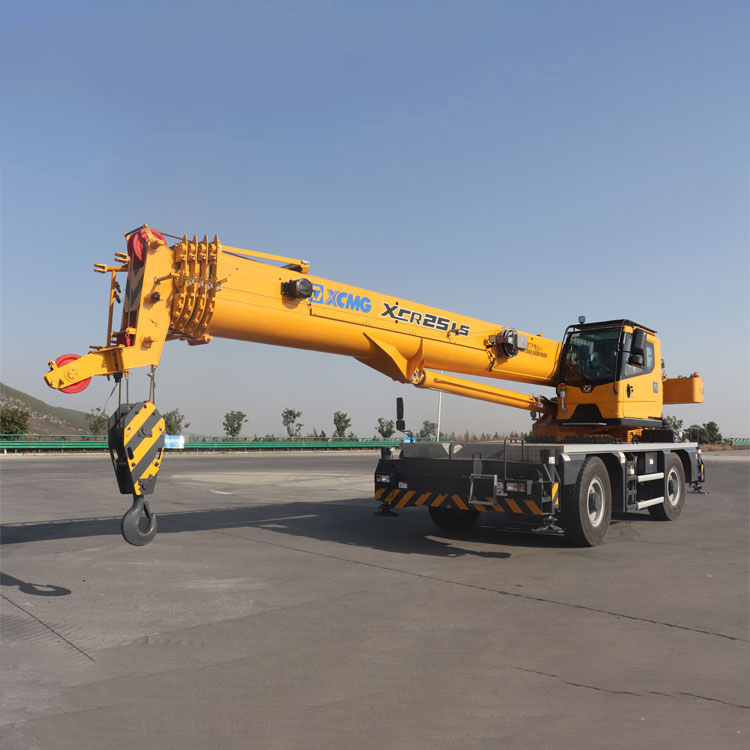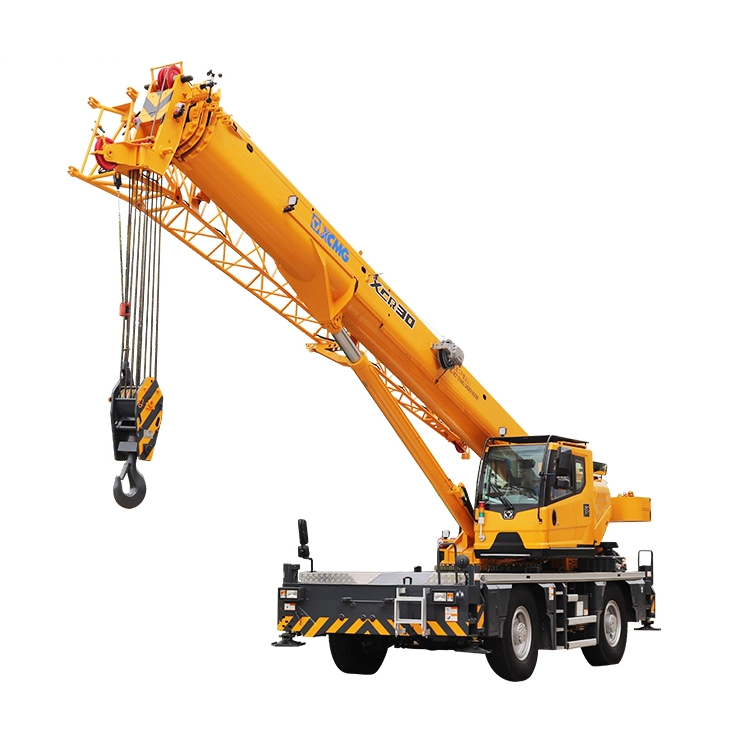
XCMG XCR30 Grúa de terreno áspero
Características del producto
Brazo telescópico de la marca 4-Section de XCMG grúa XCR30 del terreno áspero de 30 toneladas
The total rated loads given in the rated load charts are the maximum lifting capacity when the crane is set up on firm and level ground, which includes the weight of the hook block and slings. The weight of above-mentioned devices should be deducted from the rated lifting load.
The working radius shown in the rated load charts is the radius when the load is lifted off the ground, and it is the actual value including loaded boom deflection. Take boom deflection into consideration before beginning a lifting operation.
A lifting operation is permissible only when the wind force is below grade 5 (instantaneous wind speed is 14.1 m/s, wind pressure is 125 N/m2).
Before beginning lifting operation, the operator should know the weight of the load to be lifted and its working range, and then select proper working conditions. Never operate the crane beyond the limit shown in the chart. Use the lower value from the chart when the boom length or working radius is between the range of values.
Observe the boom angle limit. Never operate the crane with the boom angle beyond the recommended limit even if a load is not being carried. Otherwise, the crane will tip.
The boom should be extended according to the telescoping code shown by digits, which means the percentage of boom sections extended.
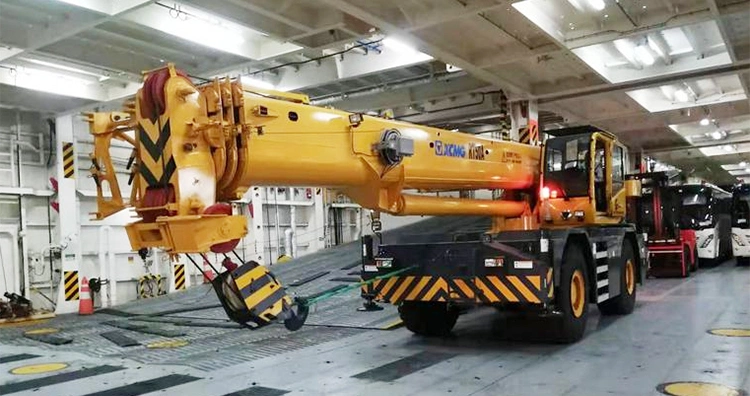
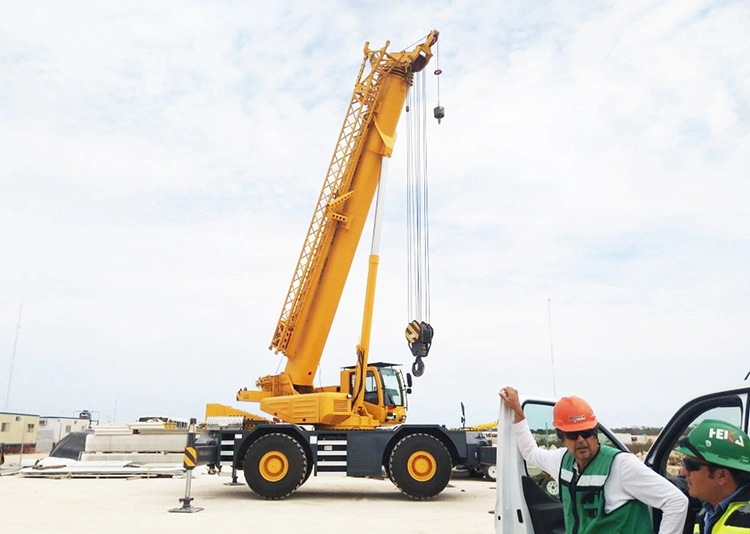
Artículo | Unidad | Parámetro |
Mediciones Parámetros | ||
Base de rueda | (Milímetro) | 3600 |
Pista de rueda | (Milímetro) | (Delantero/Trasero) 2300/2300 |
Parámetros de peso | ||
Peso bruto del vehículo al conducir | (Kilogramos) | 27334 |
Carga del eje | (Kilogramos) | (1er eje/2do eje) 13157/13763 |
Paremeter cinético | ||
Tipo de motor | - | Modelo: B6.7 |
Potencia neta del motor | (Kw/r/min) | 145 |
Parámetros de conducción | ||
Velocidad máxima de viaje | (Km/h) | 41 |
Velocidad de viaje mínima | (Km/h) | 1.6 |
Desvíos | ||
Radio de torneado mínimo | M) | 9.6 |
Capacidad de calificación máxima | (%) | 78 |
Mínimo. Separación de tierra de la máquina | (Milímetro) | 345 |
Ángulo de aproximación | (°) | 20.5 |
Ángulo de salida | (°) | 19.6 |
Distancia de frenado | M) | 9 |
Principales parámetros de rendimiento | ||
¡Max! Capacidad de elevación clasificada | (T) | 30 |
Rango nominal mínimo | M) | 3 |
¡Max! Momento de carga de la horca básica | (KN · m) | 989.8 |
Radio de giro de la cola de la placa giratoria | (Milímetro) | 3823 |
Soporte | ||
Longitudinal | M) | 6.8 |
Horizontal | M) | 6.8 |
Max. altura de elevación | ||
Boom básico | M) | 10.2 |
El auge principal más largo | M) | 34.4 |
Boom principal más largo + Boom auxiliar | M) | 42.2 |
Longitud del auge de la grúa | ||
El auge principal más largo | M) | 35 |
Boom principal más largo + Boom auxiliar + Extensión | - | - |
Velocidad de trabajo | ||
Max. velocidad de giro | (R/min) | 2.5 |
Velocidad de elevación | ||
Mecanismo de elevación principal | (M/min) | 140 |
Mecanismo de elevación auxiliar | (M/min) | 140 |



